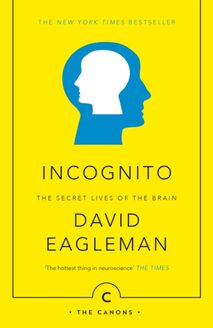-
 Univers
Univers
-
 Ebooks
Ebooks
-
 Livres audio
Livres audio
-
 Presse
Presse
-
 Podcasts
Podcasts
-
 BD
BD
-
 Documents
Documents
-
- Cours
- Révisions
- Ressources pédagogiques
- Sciences de l’éducation
- Manuels scolaires
- Langues
- Travaux de classe
- Annales de BEP
- Etudes supérieures
- Maternelle et primaire
- Fiches de lecture
- Orientation scolaire
- Méthodologie
- Corrigés de devoir
- Annales d’examens et concours
- Annales du bac
- Annales du brevet
- Rapports de stage
La lecture à portée de main
Necropolis , livre ebook
76
pages
English
Ebooks
2020
Écrit par
Boris Pahor
Publié par
Canongate Books
Vous pourrez modifier la taille du texte de cet ouvrage
Obtenez un accès à la bibliothèque pour le consulter en ligne En savoir plus
Découvre YouScribe en t'inscrivant gratuitement
Découvre YouScribe en t'inscrivant gratuitement
76
pages
English
Ebook
2020
Vous pourrez modifier la taille du texte de cet ouvrage
Obtenez un accès à la bibliothèque pour le consulter en ligne En savoir plus
Publié par
Date de parution
23 janvier 2020
Nombre de lectures
0
EAN13
9781838852306
Langue
English
Poids de l'ouvrage
1 Mo
Publié par
Date de parution
23 janvier 2020
Nombre de lectures
0
EAN13
9781838852306
Langue
English
Poids de l'ouvrage
1 Mo
Boris Pahor is a member of the Slovenian national minority in Italy, and is considered among the greatest living writers in the Slovenian language. Several of his works portray the experiences of World War II concentration camp prisoners, and their attempts to reintegrate into everyday life after the war - a process Pahor, a Dachau survivor, personally experienced.
First published in Great Britain in 2020 by Canongate Books Ltd,
14 High Street, Edinburgh EH1 1TE
Originally published in Slovenian as Nekropola by Zalozba Obzorja Maribor, 1967
canongate.co.uk
This digital edition first published in 2020 by Canongate Books
Copyright Boris Pahor, 1967
English translation copyright 1995 by Harcourt Brace & Company
Introduction copyright Alan Yentob, 2020
The right of Boris Pahor to be identified as the author of this work has been asserted by him in accordance with the Copyright, Designs and Patents Act 1988
British Library Cataloguing-in-Publication Data A catalogue record for this book is available on request from the British Library
ISBN 978 1 83885 229 0
eISBN 978 1 83885 230 6
Cold ashes lie over the shadows.
- SRE KO KOSOVEL
Contents
Introduction
Author s Foreword
It s a Sunday
INTRODUCTION
S eventy-five years ago, in November 1944, American soldiers arrived at the gates of a Nazi concentration camp, high up in the Alsace mountains, in a part of France annexed to Germany.
Once a popular winter holiday resort, Natzweiler was the first Nazi death camp to be discovered by the Western Allies. Although small and even now relatively unknown, it was also one of the deadliest. Nearly half of its estimated 52,000 prisoners died.
A British intelligence officer who accompanied the troops wrote a report detailing the torture, executions and medical experiments that had taken place there. He thought it would send shock waves through Allied Command, but it fell on deaf ears. There was a war still to be won and it wasn t until Auschwitz and Belsen were liberated the following year that the true horror of the camps finally became known to the world.
The name Natzweiler was quietly forgotten, but one man lives on to tell the story, and he has forgotten nothing. His name is Boris Pahor; he is now 106 years old, the oldest known survivor of the Nazi concentration camps. He was a prisoner in Dachau, Belsen and Natzweiler, where he returned twenty years later to write his extraordinary book: Necropolis - City of the Dead.
The raw intensity of Pahor s writing takes the reader deep into the world of the camps. It stands equal to Primo Levi s If This Is a Man . Necropolis has been published across Europe to great acclaim but has yet to reach the wider English-speaking audience it deserves, until now.
I first heard about the book and its author thanks to the determination and insistence of my friend and colleague Marc Ramsay, and together we eventually made our way to Boris Pahor s home on a hillside overlooking Trieste, in Italy. Soon after our arrival Pahor vividly recalled the moment of his arrest by the Gestapo in the city square: They started to beat me with a leather strap, each with a whip, all over my body. I was screaming. I was like a zebra when I went back to the jail.
He was a partisan member of the Resistance, a loyal representative of the Slovenian minority, determined to oppose Italian fascism and the Nazi takeover of his homeland. His SS captors locked him in a cell no bigger than a cupboard for twenty-four hours. He was convinced he would suffocate. If I lost consciousness, I would pass away and I would be taken out dead, he told me. But Pahor didn t die. Instead of killing him, the Nazis sent him to Dachau. That journey, he says, was the beginning of a descent into the heart of darkness . They labelled you with a red triangle. You were given a number that replaced your name. You were thrown trousers, a jacket, a pair of clogs. But despite the clothes you were almost naked. It was very cold, several degrees below zero.
Reduced to a number, Pahor ended up in Natzweiler, the camp where he was to stay the longest. It was constructed high up on a mountainside, which was once a fashionable ski resort. A grand holiday home with a swimming pool was requisitioned for the camp commandant and his young family; ashes from the crematorium were used to help grow their flowers. The local restaurant and hotel now housed SS officers. The village dancehall was transformed into a gas chamber.
In Natzweiler you were always afraid, says Pahor. You came in at the top and the gallows welcomed you. Looking down the steps you could see the barracks. We were told there was an oven there. There was no way out but the chimney.
The camp s perimeter was secured by a double fence of electrified barbed wire. The sentry boxes searchlights were always on. Unlike in the bigger camps, there was nowhere to hide.
It was impossible not to think of the crematorium as you constantly saw it, Pahor told me. You couldn t avoid the smell of burning flesh because you had to keep breathing, so in a way you became part of that burning flesh.
He was still a child when his beloved Slovenian community centre in the heart of Trieste was burned to the ground by fascist extremists. I did not know what the end of the world was, he told me. But as a boy of seven years old, it was the end of the world for me.
Now he realised those flames that haunted his childhood had followed him, and all Europe was ablaze.
Natzweiler was intended for prisoners of war, political prisoners and members of the Resistance, but there was also a small minority of Jews, gypsies and Jehovah s Witnesses. The prisoners transported there were used as slave labour, initially working in the nearby quarry, cutting pink granite rocks that would eventually be used to face the Nazis showpiece buildings. As the war went on the prisoners were forced to work in underground factories to support the Nazi war machine by manufacturing parts for aircraft engines. Survival was perilous: typhus, fatigue, hunger, freezing cold. I asked Pahor how he managed to survive. He raised his little finger. This is what saved me, he replied.
Boris had injured his finger while working in the camp and kept it covered with a paper bandage to ward off infection. It turned out to be a lifesaver. When it was his turn to be examined, the camp s doctor learnt that Pahor understood several Slavic languages and spoke Italian, French and German. He was assigned duties as a translator and medical orderly, where he tried to make the lives, and slow deaths, of his fellow prisoners as comfortable and humane as possible. There was little or no medicine and even less food.
During the winter months, icy winds drove temperatures down to minus 20 C. The prisoners thin, striped clothing was no protection from the cold, but there was an occasional respite when they were sent to the shower block in an effort to avoid an outbreak of typhus in the camp. We had to undress so that we were completely naked. They shaved our heads, armpits and crotches. There was not a hair left on our bodies. Then they put us under the showers. What he writes about this in Necropolis is almost unbearable,
Now streams of water are released from the showerheads and a thicket of bodies jostles in the warmth, arms scrubbing arms with a hard soap The body loves the countless warm tongues that lick it, and the memory of the night mountain air vanishes for a while and we forget that beneath the shower room is an oven, and that night and day a stoker heaves human logs into it.
On 23 November 1944, when the Allied soldiers arrived, Natzweiler was empty but intact. The Nazis had abandoned the camp, dragging their prisoners with them. During the evacuation, Pahor tried to help as many inmates as he could. He writes,
I saw the men who had given up waiting for help and had risen from their mattresses on their own frail phantoms whose bare feet made no sound Flapping their arms to keep their balance, like blinded birds whose feathers had been singed off.
Boris fell ill on the 250-mile journey back to Dachau and was eventually transferred to Bergen-Belsen. Fortunately, the Allies were not far behind. He was liberated by the British Army on 15 April 1945 and made his way to Paris, where he was diagnosed with tuberculosis and sent to a sanatorium. He remained there for a year and a half and was slowly nursed back to health. Before he left Paris he had his photograph taken in a children s amusement park, in which he posed in his striped prisoner clothes one last time.
Boris Pahor was finally able to return home in time for Christmas, in December 1946, and in due course resumed his life in Trieste. He married, had two children and went on to become a schoolteacher and a formidably talented writer.
When he revisited Natzweiler twenty years later in the 1960s, the camp was still there, preserved as a memorial, but disconcertingly filled with tourists. Memories flooded back of the struggles and the torment and the countless lives which had been lost. He resolved to write about them, partly to unburden my inner being and partly to make readers aware of all those people who perished fighting for a liberated Europe .
Seventy-five years after the terrible events he went on to describe, Necropolis is now widely acknowledged as a masterpiece and has been published in multiple languages around the world.
ALAN YENTOB
JANUARY 2020
AUTHOR S FOREWORD
Like all men of my age, I grew up to the sound of the drums of the First World War, and our history since that time has remained murder, injustice, or violence.
- ALBERT CAMUS
There are times when it s not very pleasant to speak about oneself, and occasions when it can even be a strain, especially when the purpose is to present the geographic and historical context of a scene of events. Such, for me, is the case of the ethnic Slovenian population that has lived in and around the northeast Italian city o

Ebooks
Chronicle In Stone
Ismail Kadaré


Ebooks
Incognito
David Eagleman


Ebooks
Ocean Sea
Alessandro Baricco


Ebooks
Fortunate Man
John Berger


Ebooks
Teaching a Stone to Talk
Annie Dillard


Ebooks
Neither Wolf Nor Dog
Kent Nerburn


Ebooks
Close to the Knives
David Wojnarowicz


Ebooks
Philadelphia Fire
Edgar Wideman John


Ebooks
L.A. Woman
Eve Babitz


Ebooks
Edge of the Sea
Rachel Carson


Ebooks
Under the Sea-Wind
Rachel Carson


Ebooks
Pattern in the Carpet
Margaret Drabble


Ebooks
Reconciliation
Naoya Shiga


Ebooks
Dante's Divine Trilogy
Alasdair Gray


Ebooks
Summer Bird-Cage
Margaret Drabble

-
 Univers
Univers
-
 Ebooks
Ebooks
-
 Livres audio
Livres audio
-
 Presse
Presse
-
 Podcasts
Podcasts
-
 BD
BD
-
 Documents
Documents
-
Jeunesse
-
Littérature
-
Ressources professionnelles
-
Santé et bien-être
-
Savoirs
-
Education
-
Loisirs et hobbies
-
Art, musique et cinéma
-
Actualité et débat de société
-
Jeunesse
-
Littérature
-
Ressources professionnelles
-
Santé et bien-être
-
Savoirs
-
Education
-
Loisirs et hobbies
-
Art, musique et cinéma
-
Actualité et débat de société
-
Actualités
-
Lifestyle
-
Presse jeunesse
-
Presse professionnelle
-
Pratique
-
Presse sportive
-
Presse internationale
-
Culture & Médias
-
Action et Aventures
-
Science-fiction et Fantasy
-
Société
-
Jeunesse
-
Littérature
-
Ressources professionnelles
-
Santé et bien-être
-
Savoirs
-
Education
-
Loisirs et hobbies
-
Art, musique et cinéma
-
Actualité et débat de société
- Cours
- Révisions
- Ressources pédagogiques
- Sciences de l’éducation
- Manuels scolaires
- Langues
- Travaux de classe
- Annales de BEP
- Etudes supérieures
- Maternelle et primaire
- Fiches de lecture
- Orientation scolaire
- Méthodologie
- Corrigés de devoir
- Annales d’examens et concours
- Annales du bac
- Annales du brevet
- Rapports de stage





